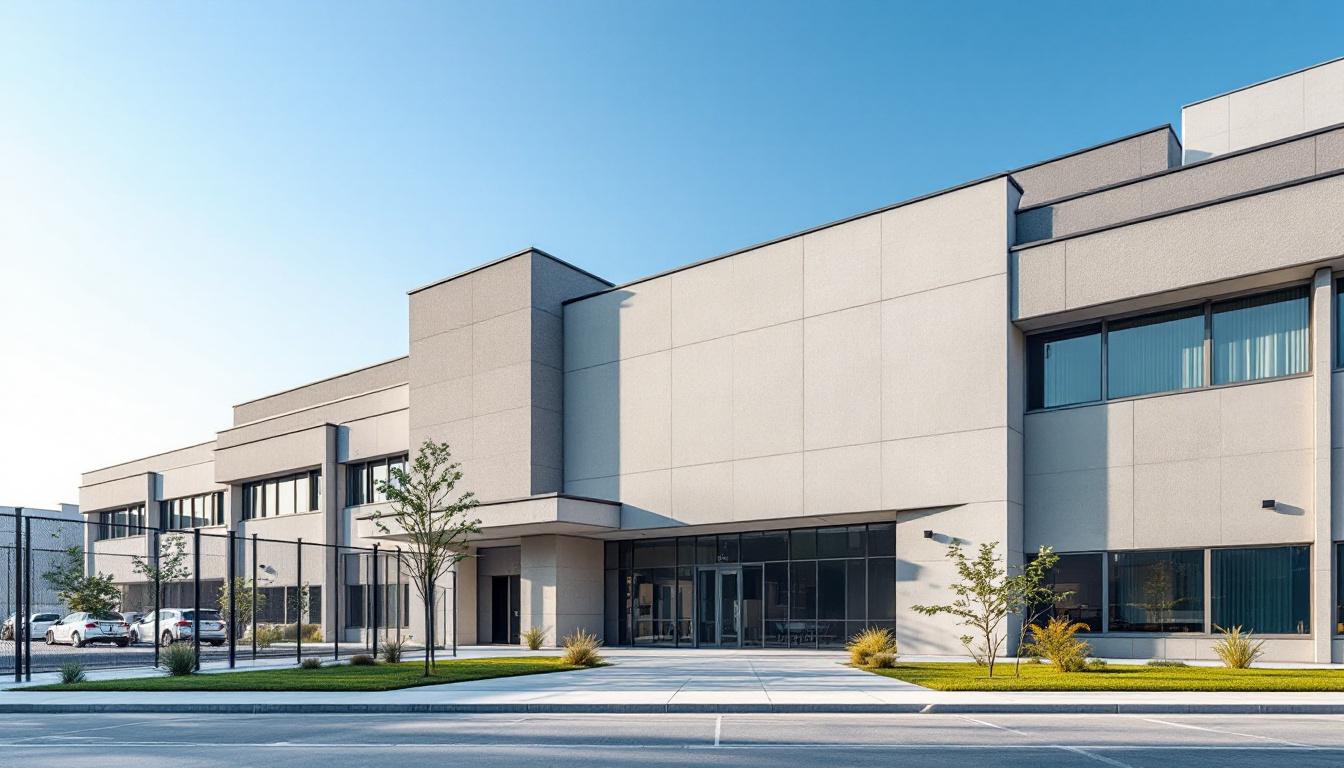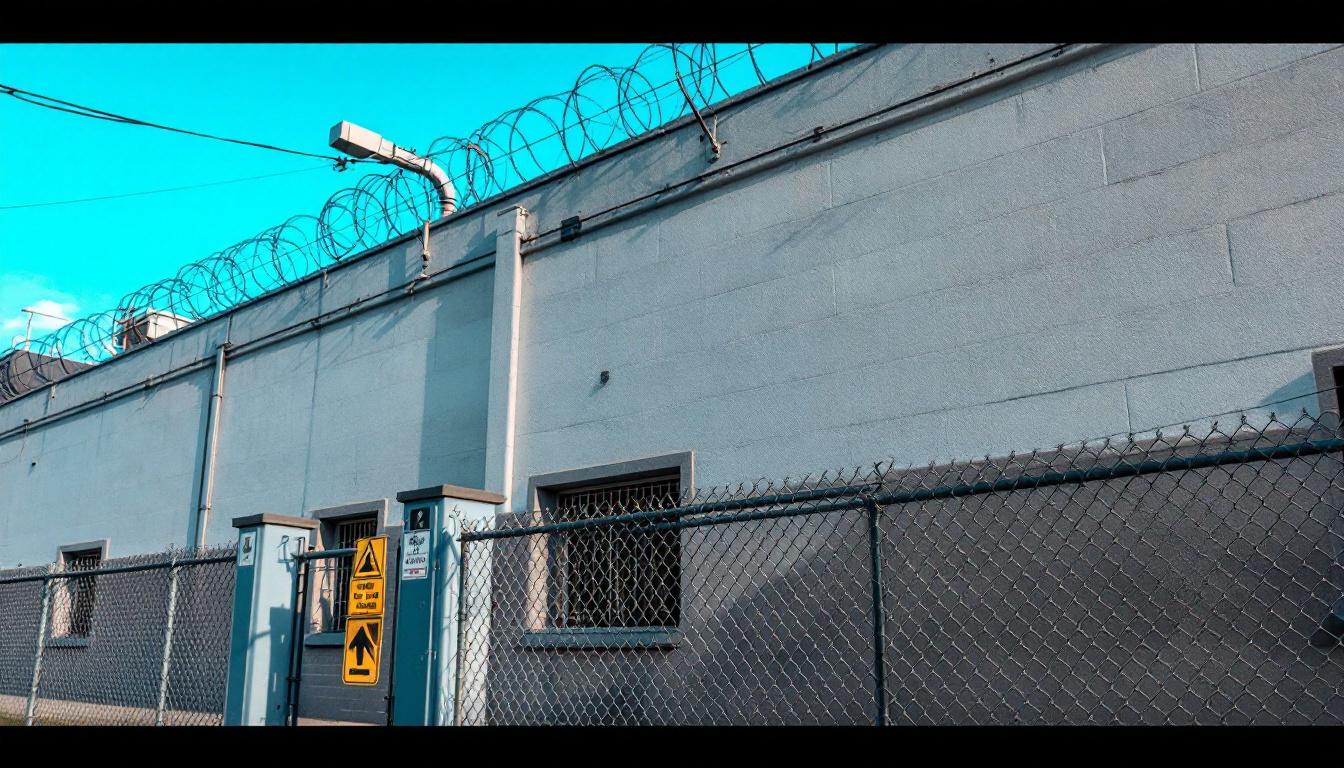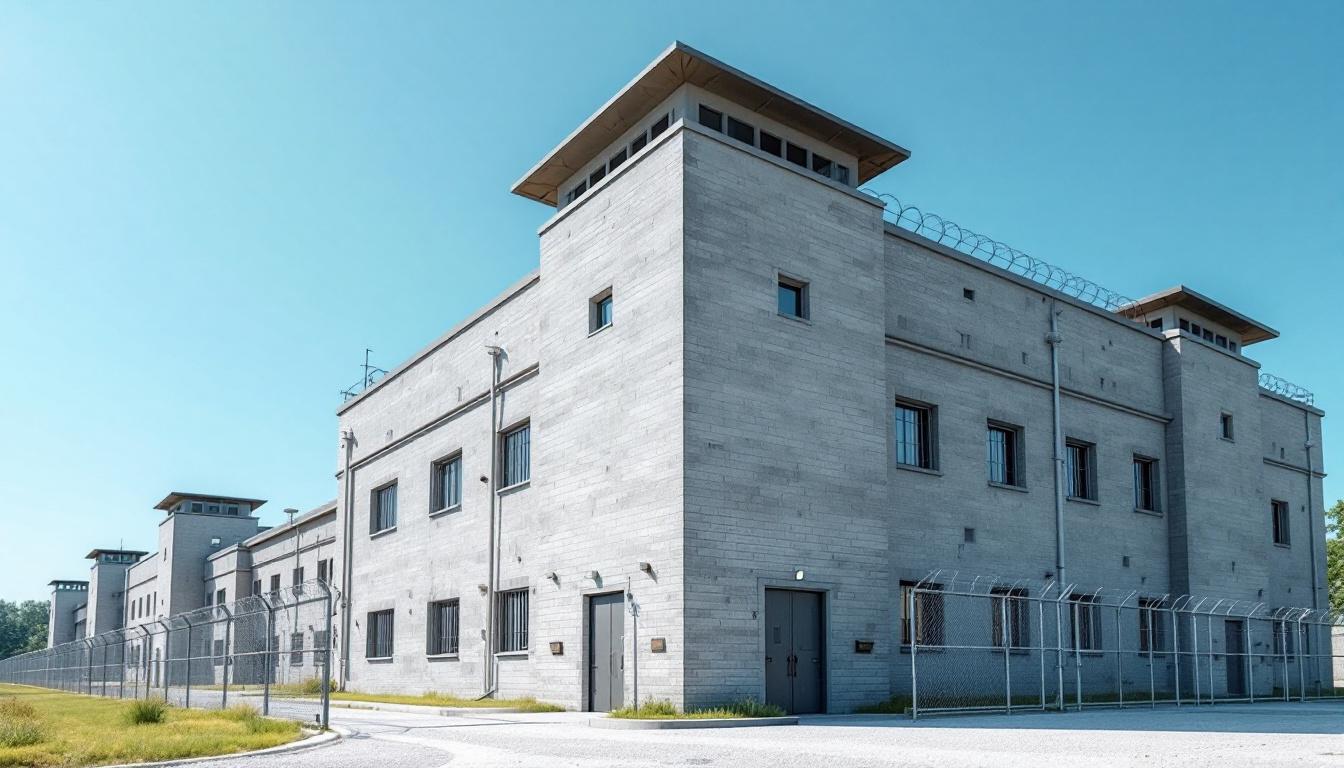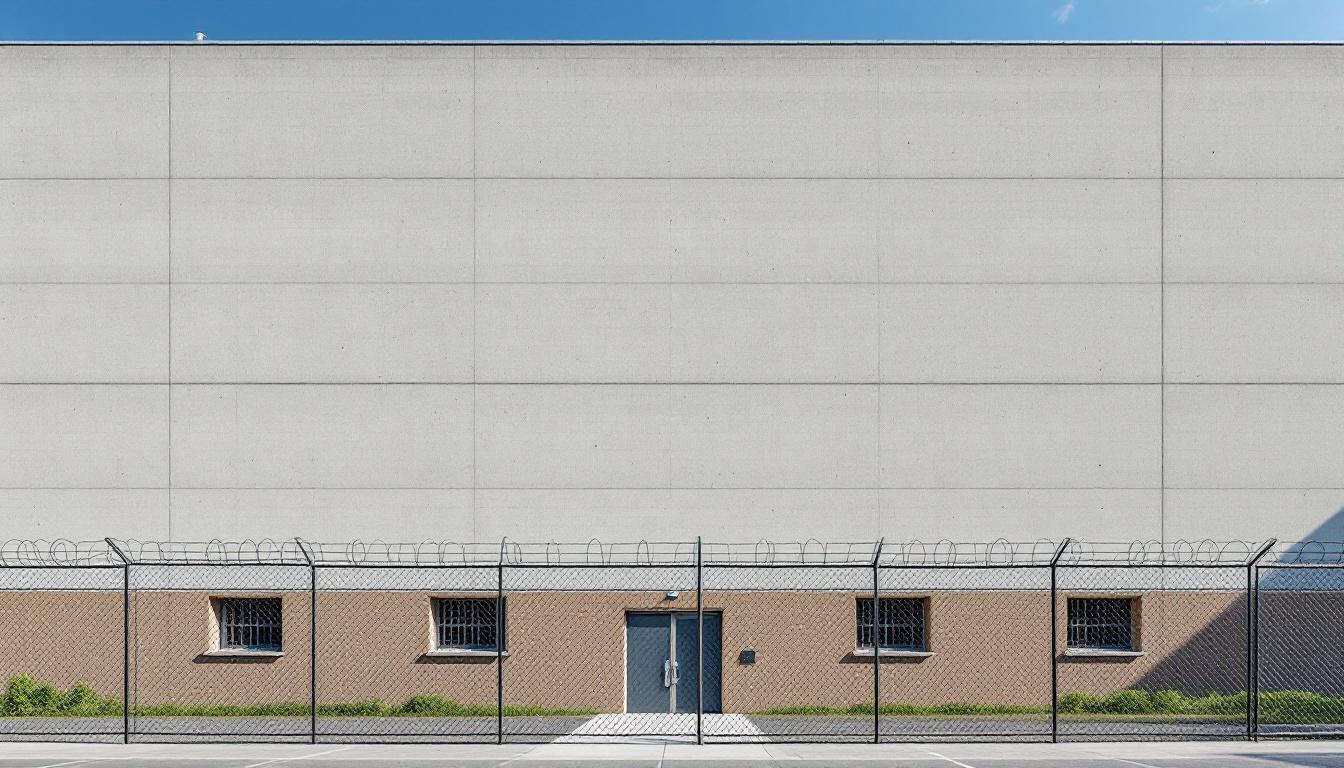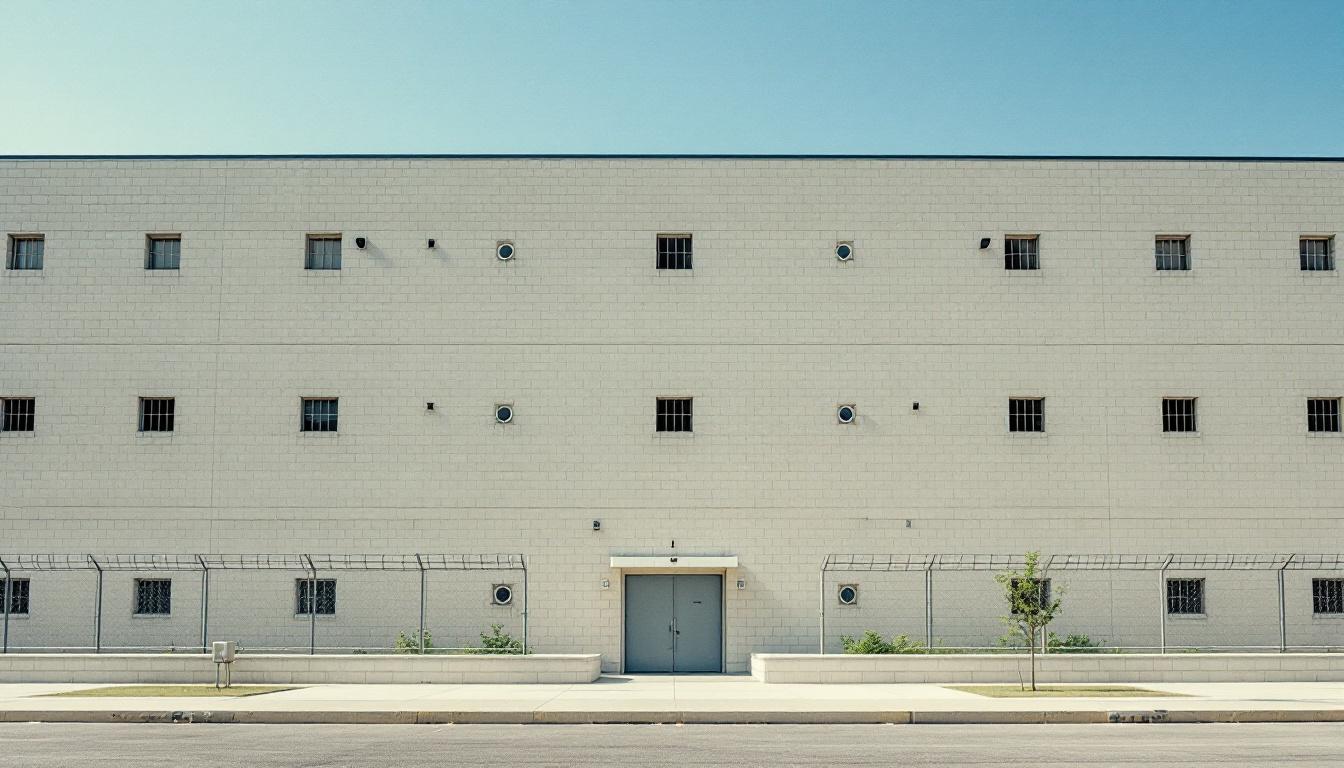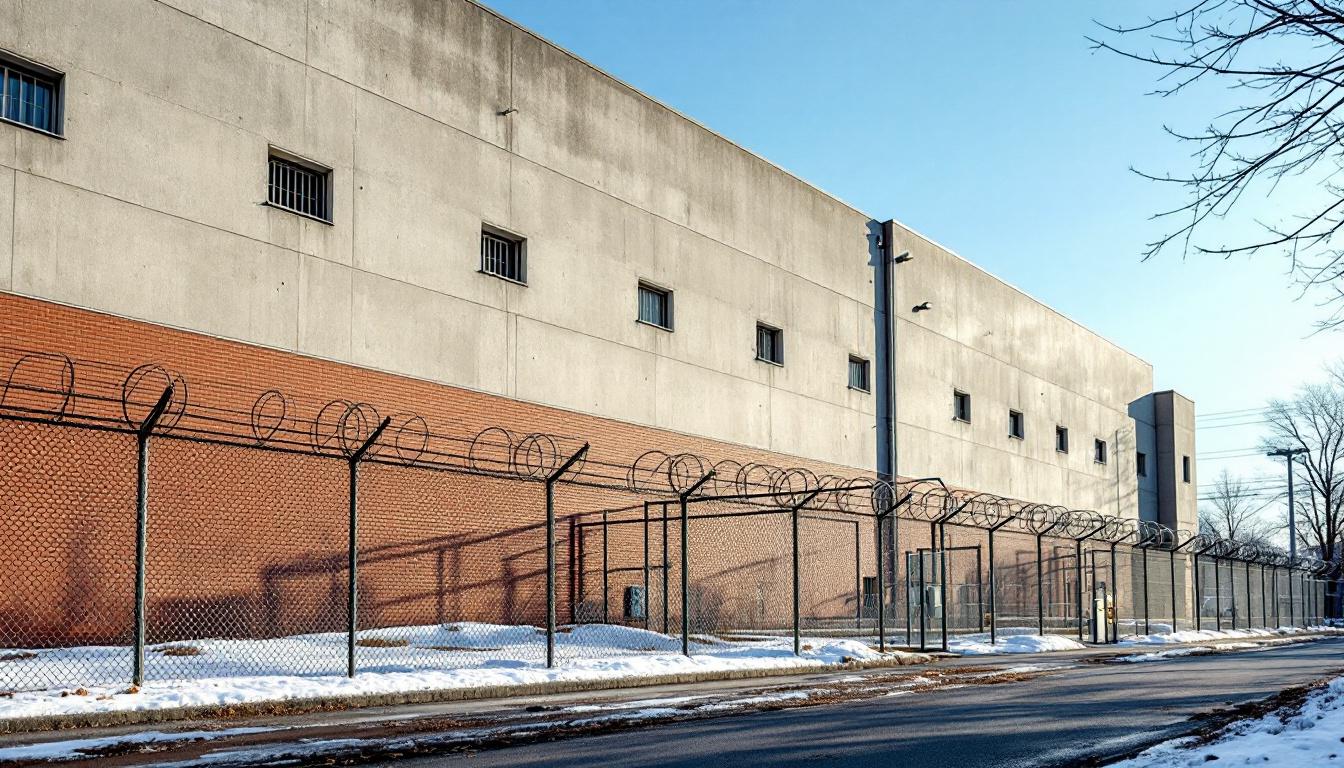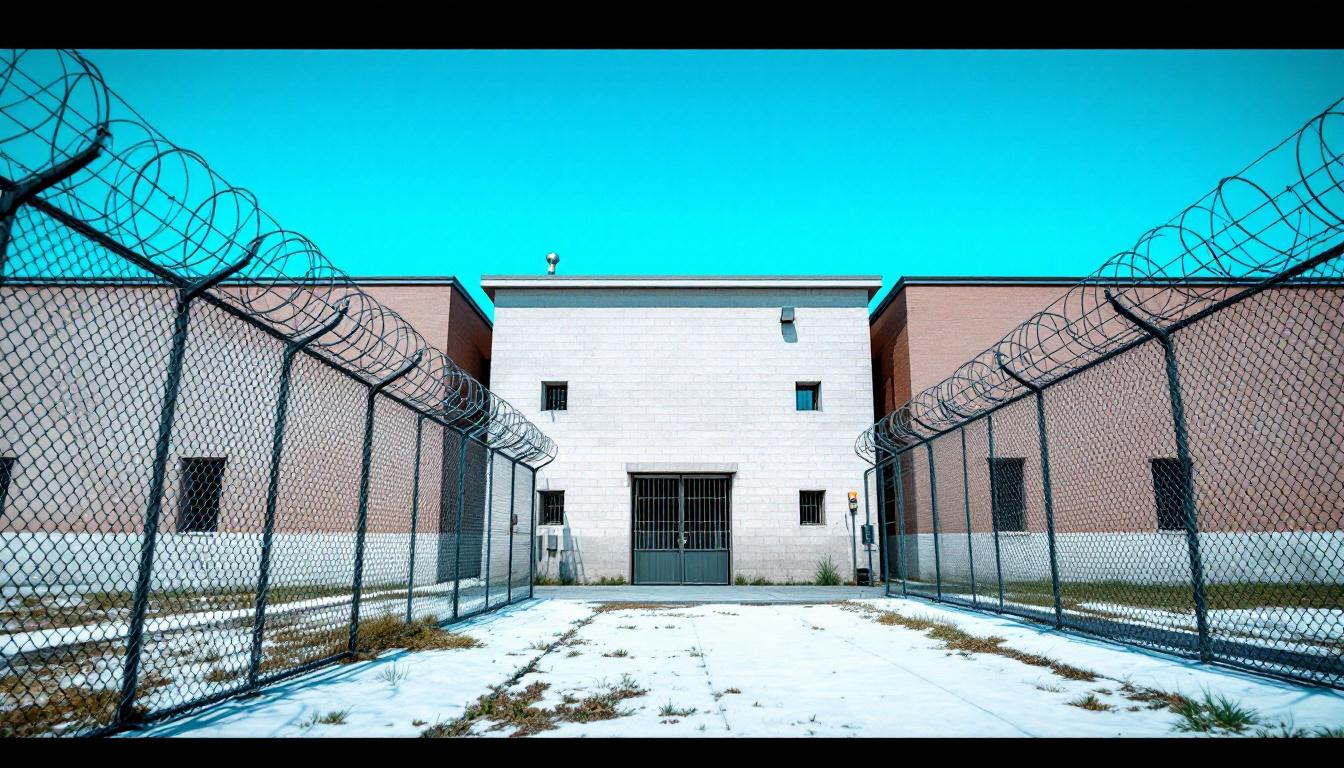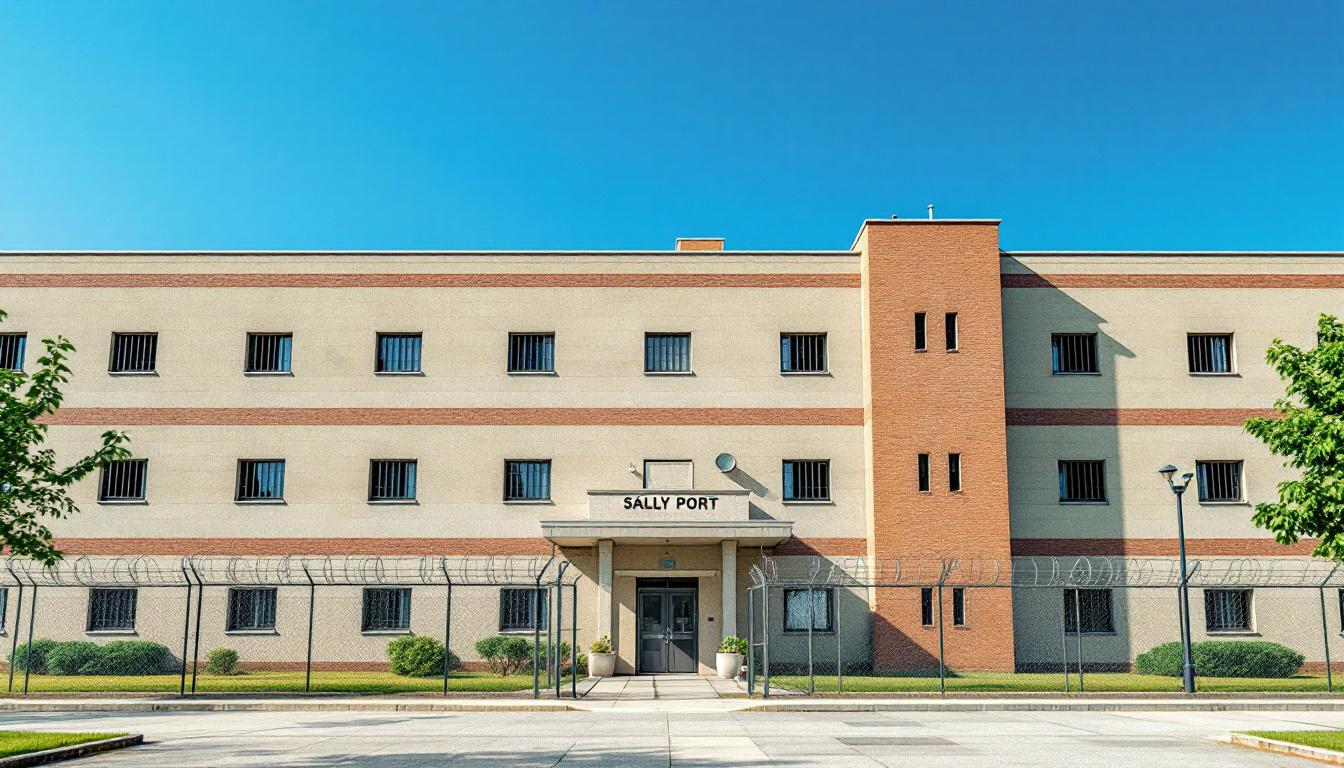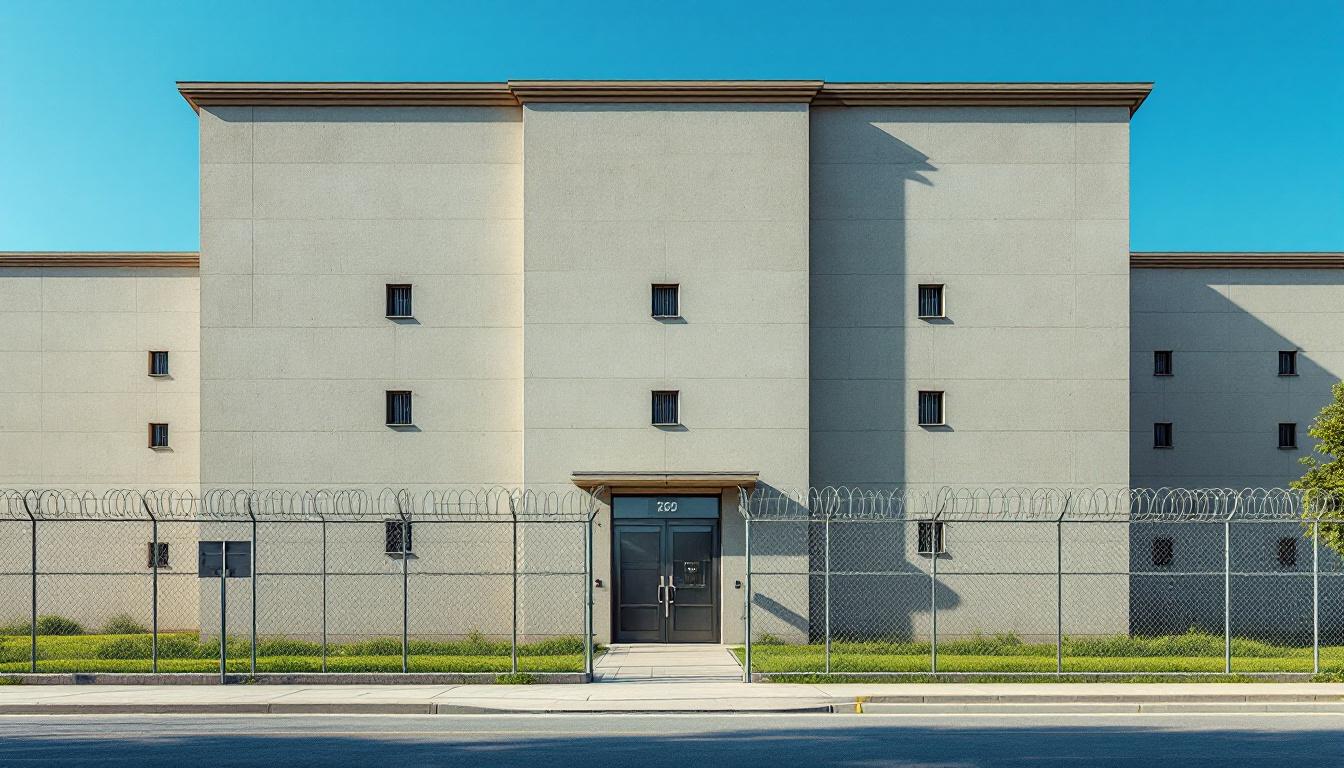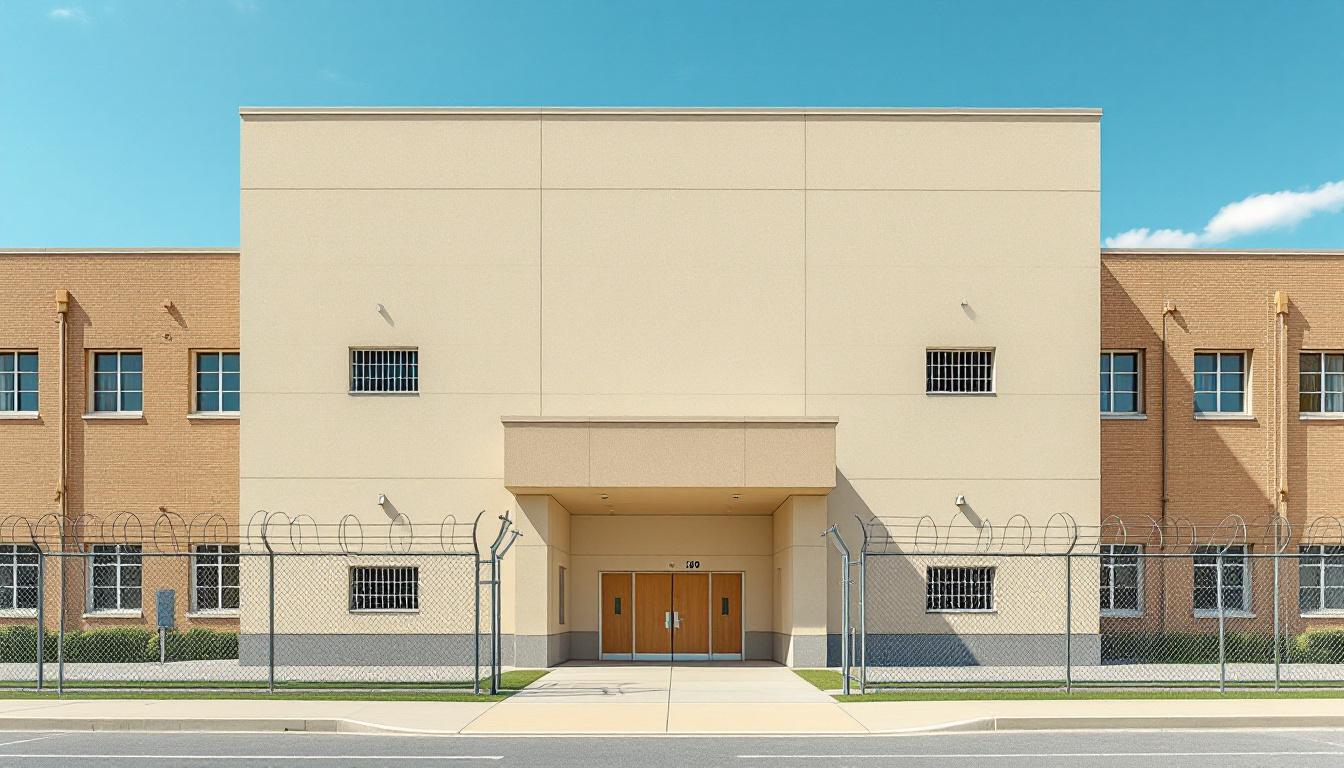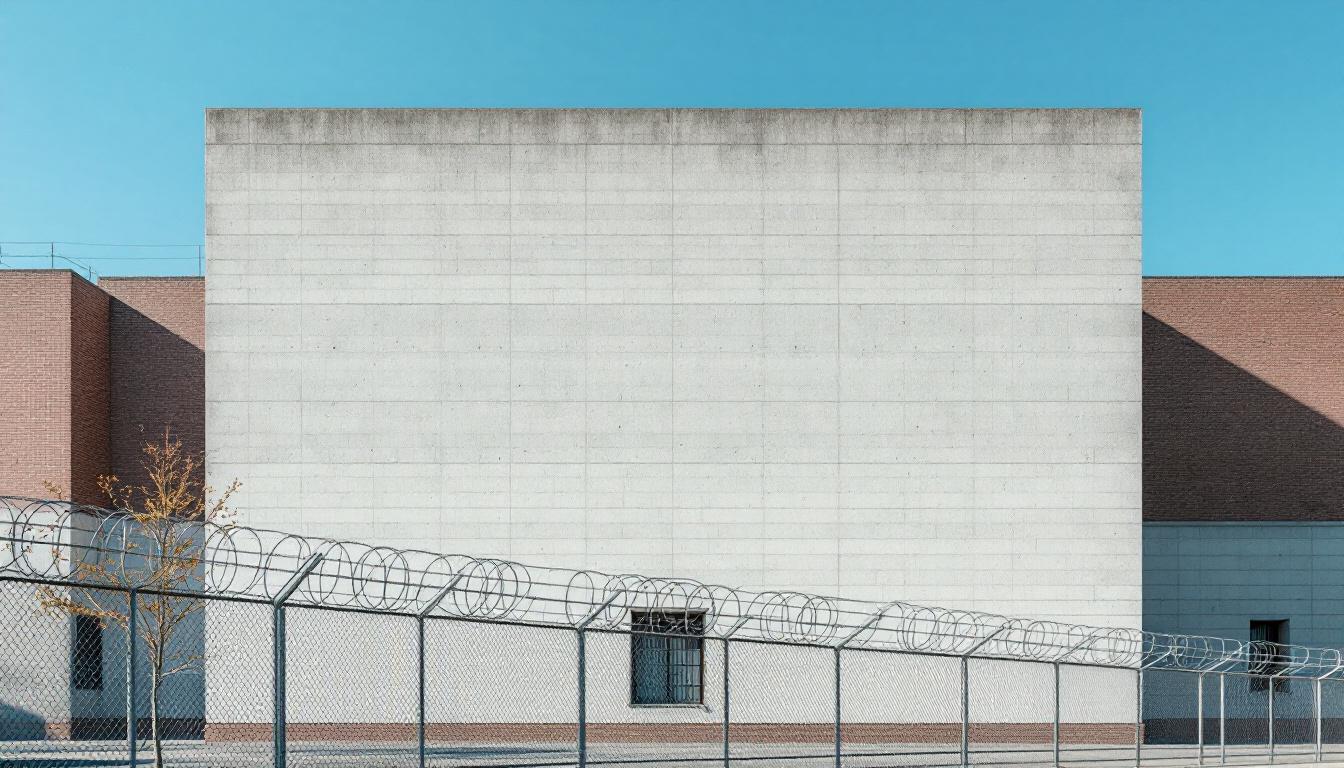
Quick Navigation
How to contact an inmate at Dillwyn Correctional Center
This comprehensive guide will walk you through how to connect with an inmate at Dillwyn Correctional Center. Follow the steps below to find an inmate and send letters and photos:
- Search for the inmate using our search tool below
- Create your account or log in to Penmate
- Write your message (up to 6,000 characters)
- Send instantly - inmates receive printed copies daily
Find an Inmate
Search for an inmate to start communicating today
Tip: You can search by first name, last name, or inmate ID number
To contact a person at Dillwyn Correctional Center start by searching for the person on the official facility website. Perform a search by following these steps:
- Step 1: Enter their first name and last name into the search form and click "Search"
- Step 2: Locate their inmate record
- Step 3: Write down their Inmate ID and any housing information provided
Important! Be sure to enter the person's full name. Nicknames should not be used.
How to Send Messages to Inmates

You can use your phone or computer to send emails, letters, and photos to an inmate. Messages are sent electronically to inmate tablets or kiosks at the facility. If you would like to send a message, start by searching for an inmate at Dillwyn Correctional Center.
Sending Photos and Postcards

A great way to send love and support to a loved one at Dillwyn Correctional Center is to send photos and postcards. It only takes a few minutes to send photos from your phone and it makes a huge difference. You can also mail postcards with words of support and inspiration, or design your own postcard for special moments like birthdays and holidays.
Important! Be sure not to send any explicit photos or they may not be approved by the facility. You can also use a photo printing app like Penmate to make sure your photos are printed at the correct size (4x6 or 3x5) and are mailed according to the rules and regulations of Dillwyn Correctional Center.
Frequently asked questions about Dillwyn Correctional Center
-
How long does it take to deliver a message?
If you're sending an email message your letter is usually delivered within 24-48 hours. For messages sent via mail you should expect delivery within 3-7 days. All messages will need be approved by Dillwyn Correctional Center.
-
How much does it cost to send a message to Dillwyn Correctional Center?
You can send a message free using your phone or mail a message via USPS for the price of a $0.60 stamp and envelope. You can also purchase credits or e-stamps from services starting at $1.99.
-
What services can I use to contact an inmate at Dillwyn Correctional Center?
Penmate
You can use Penmate to send letters and photos to an inmate from your phone. It's an easy way to stay in touch during your loved one's incarceration. Use the inmate locator to find an inmate's location and contact information, then you can send messages within a few minutes.
Securus messaging
Securus may be another option for communicating with an inmate at Dillwyn Correctional Center. You can create a friends and family account and purchase credits to send messages. All messages will be reviewed and must be approved by the facility.
JPay
Some county jails and state prisons may support sending messages with JPay. You must register an account with the system, find your loved one, and purchase stamps to send messages. For some locations you can also attach photos.
Smart Jail Mail
You may also check if Smart Jail Mail is available at Dillwyn Correctional Center. Smart Jail Mail is operated by Smart Communications and has contracted with some state and county jails. After purchasing credits, your messages and photos are sent to the facility, printed out, and then handed out to your loved one.
-
What is the mailing address of Dillwyn Correctional Center?
Mailing address:
Dillwyn Correctional Center
1522 Prison Rd
Dillwyn, VA 23936
Phone: (434) 983-4200Business hours:
- Monday: Open 24 hours
- Tuesday: Open 24 hours
- Wednesday: Open 24 hours
- Thursday: Open 24 hours
- Friday: Open 24 hours
- Saturday: Open 24 hours
- Sunday: Open 24 hours
-
What are the visiting hours at Dillwyn Correctional Center?
Visiting hours at Dillwyn Correctional Center vary by housing unit and security level. Generally, visits are scheduled on weekends and holidays, with some facilities offering weekday visits. Contact the facility directly at (434) 983-4200 or check their website for the current visiting schedule. Visits typically last 30-60 minutes and must be scheduled in advance.
-
What items are prohibited when sending mail to Dillwyn Correctional Center?
Prohibited items typically include: cash, personal checks, stamps, stickers, glitter, glue, tape, staples, paperclips, polaroid photos, musical or blank greeting cards, hardcover books, magazines with staples, and any items containing metal or electronics. Only send letters on plain white paper with blue or black ink. Photos must be printed on regular photo paper (no Polaroids). Always check with Dillwyn Correctional Center for their specific mail policies.
-
How do I send money to an inmate at Dillwyn Correctional Center?
You can send money to an inmate at Dillwyn Correctional Center through several methods: 1) Online using JPay, Access Corrections, or the facility's approved vendor, 2) Money orders mailed directly to the facility with the inmate's name and ID number, 3) Kiosks located in the facility lobby, or 4) Over the phone using a credit or debit card. Fees vary by method, typically ranging from $2.95 to $11.95 per transaction.
-
Can I schedule a video visit with an inmate at Dillwyn Correctional Center?
Many facilities now offer video visitation as an alternative to in-person visits. At Dillwyn Correctional Center, video visits may be available through services like Penmate, Securus Video Connect, GTL, or ICSolutions. Video visits typically cost $10-20 for 20-30 minutes and must be scheduled in advance. You'll need a computer or smartphone with a camera and reliable internet connection. Contact the facility for their specific video visitation policies and approved vendors.
-
What identification do I need to visit an inmate at Dillwyn Correctional Center?
All visitors must present valid government-issued photo identification such as a driver's license, state ID, passport, or military ID. Minors must be accompanied by a parent or legal guardian who can provide the minor's birth certificate. Some facilities require visitors to be on the inmate's approved visitation list, which may require a background check. Contact Dillwyn Correctional Center for specific ID requirements and visitor approval procedures.
-
How can I find out an inmate's release date?
To find an inmate's release date at Dillwyn Correctional Center, you can: 1) Use the online inmate search tool if available, 2) Call the facility's records department, 3) Contact the inmate's case manager or counselor, or 4) Have the inmate provide this information during a call or visit. For privacy reasons, some facilities only release this information to immediate family members.
Facility Overview
Contact Information
Dillwyn Correctional Center1522 Prison Rd
Dillwyn, VA 23936
Phone: (434) 983-4200
Official Website

About Dillwyn Correctional Center
Evidence-based rehabilitation programs and comprehensive reentry services form the cornerstone of operations at Dillwyn Correctional Center, VA, where individuals receive structured support designed to facilitate successful community reintegration. This VA correctional facility typically offers educational opportunities, vocational training, and behavioral intervention programs that align with the Virginia Department of Corrections' emphasis on reducing recidivism through skill development and personal accountability. Located in the rural community of Dillwyn, the facility generally provides individuals services that may include substance abuse treatment, mental health counseling, and work programs that help develop practical skills applicable to post-release employment opportunities.
The correctional facility operates within Virginia's broader network of institutions, contributing to the state's correctional goals through programming that often emphasizes personal responsibility and community safety. Rehabilitation efforts at the Dillwyn location typically encompass academic instruction, which may range from basic literacy to GED preparation, alongside vocational training programs that generally focus on marketable skills. Mental health and substance abuse services are commonly integrated into daily operations, reflecting evidence-based approaches to addressing underlying factors that may contribute to criminal behavior. The facility's rural setting in central Virginia often provides a structured environment where individuals can participate in various therapeutic and educational activities designed to support their transition back into society upon release.
Programs & Services
From foundational literacy courses to advanced vocational certifications, the breadth of developmental opportunities reflects a commitment to addressing diverse individual needs and goals. This comprehensive approach recognizes that meaningful change often requires multiple pathways for growth and skill development. Individuals typically have access to structured programming designed to build both practical capabilities and personal insight.
Educational opportunities often include basic literacy instruction, GED preparation, and continuing education courses that help individuals advance their academic foundation. Vocational training programs may offer hands-on instruction in trades and technical skills that align with employment demands in the broader community. These learning experiences typically emphasize both theoretical knowledge and practical application, preparing participants for successful reintegration.
In addition to academic and technical development, therapeutic and support services play a central role in the facility's programming structure. Group therapy sessions may provide structured environments for individuals to address underlying issues and develop healthier coping strategies. Cognitive behavioral programs often focus on helping participants recognize and modify thought patterns that contribute to problematic behaviors. Support services typically extend to practical assistance such as facility maintenance work opportunities, community service projects, and identification document assistance that helps individuals prepare for their eventual release and community reentry.
Daily Life & Visitation
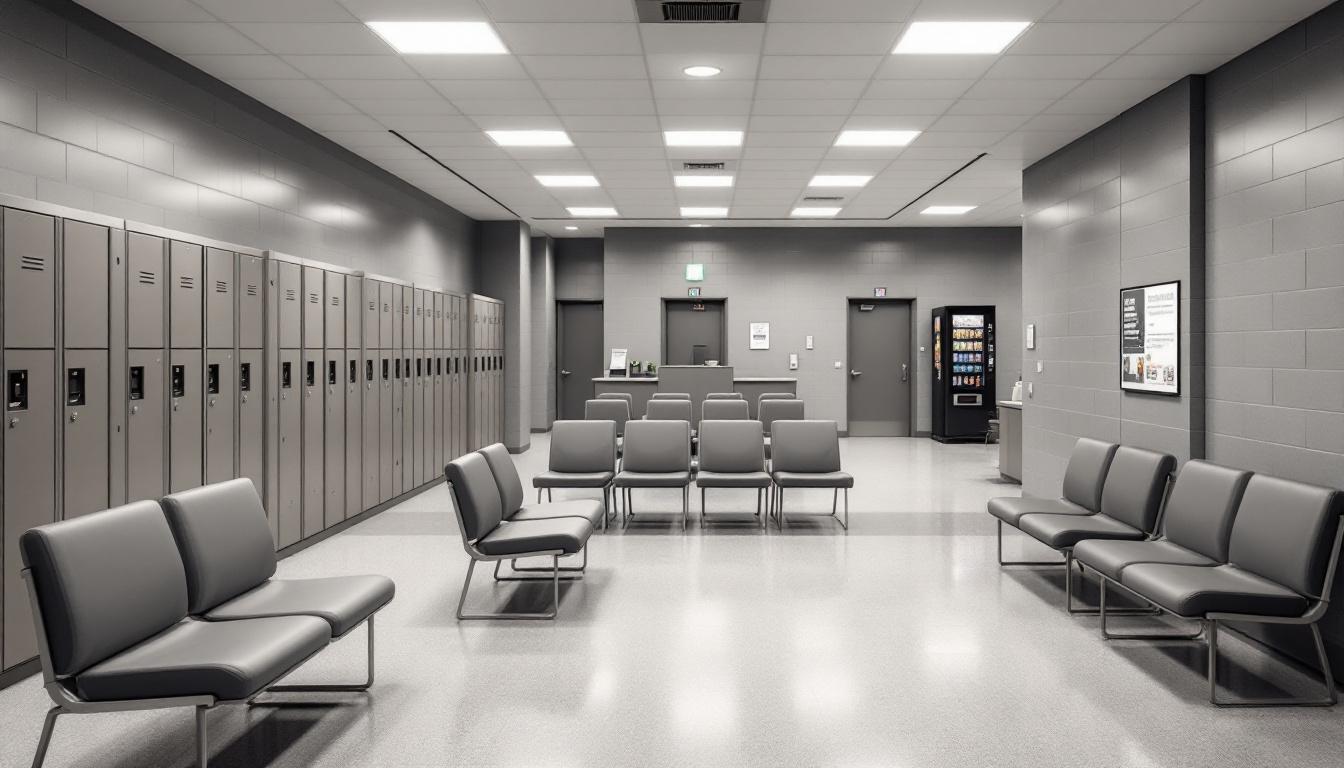
The sound of morning announcements now marks the beginning of each day for individuals housed at this Virginia correctional facility. Daily routines typically begin early with wake-up calls, followed by mandatory counts that occur regularly throughout each 24-hour period. Individuals generally move through structured schedules that include meal times, work assignments, and programming activities. The facility operates on a system where movement between areas requires supervision, and individuals must follow established protocols for accessing different parts of the compound.
Living accommodations at the facility typically consist of housing units where individuals may share cells or dormitory-style arrangements depending on security classification and availability. Personal property allowances generally include basic necessities, clothing, and limited personal items that meet facility guidelines. In addition to this basic housing structure, individuals can often purchase additional approved items through the commissary system. Meals are typically served in designated dining areas at scheduled times, with menu options that aim to meet basic nutritional requirements while accommodating some dietary restrictions and religious observances.
The facility offers various programs and activities designed to provide structure and skill development opportunities. Work assignments may include kitchen duties, maintenance tasks, laundry services, or other facility operations that help individuals develop job skills while contributing to daily operations. Despite this structured environment, individuals typically have access to recreational activities such as television viewing, library services, and outdoor exercise periods when weather and security conditions permit. Family connections remain important through scheduled visitation programs and telephone privileges, though these communications generally operate under specific guidelines and monitoring procedures that help maintain facility security while supporting family relationships.
Ready to Connect?
Start communicating with your loved one today
Search for an Inmate
